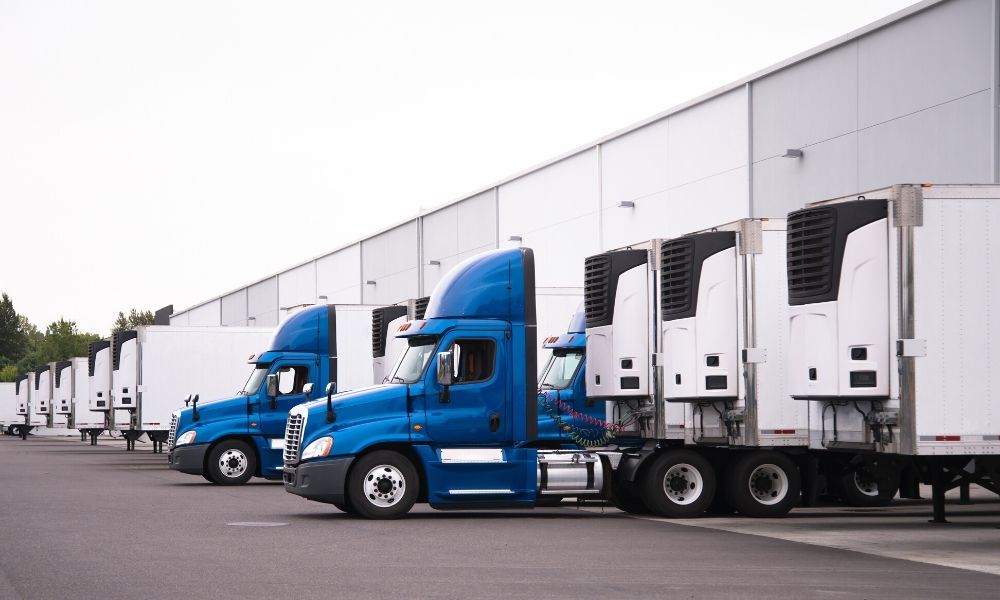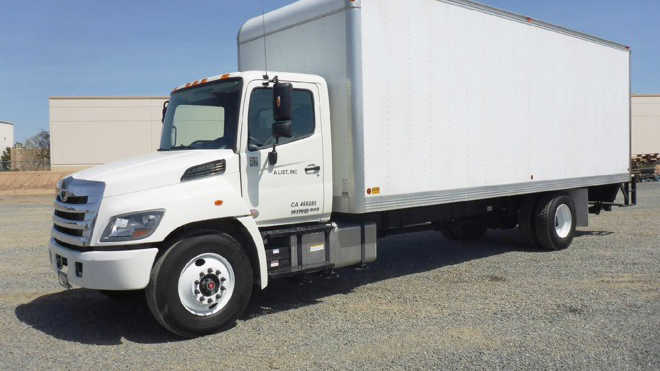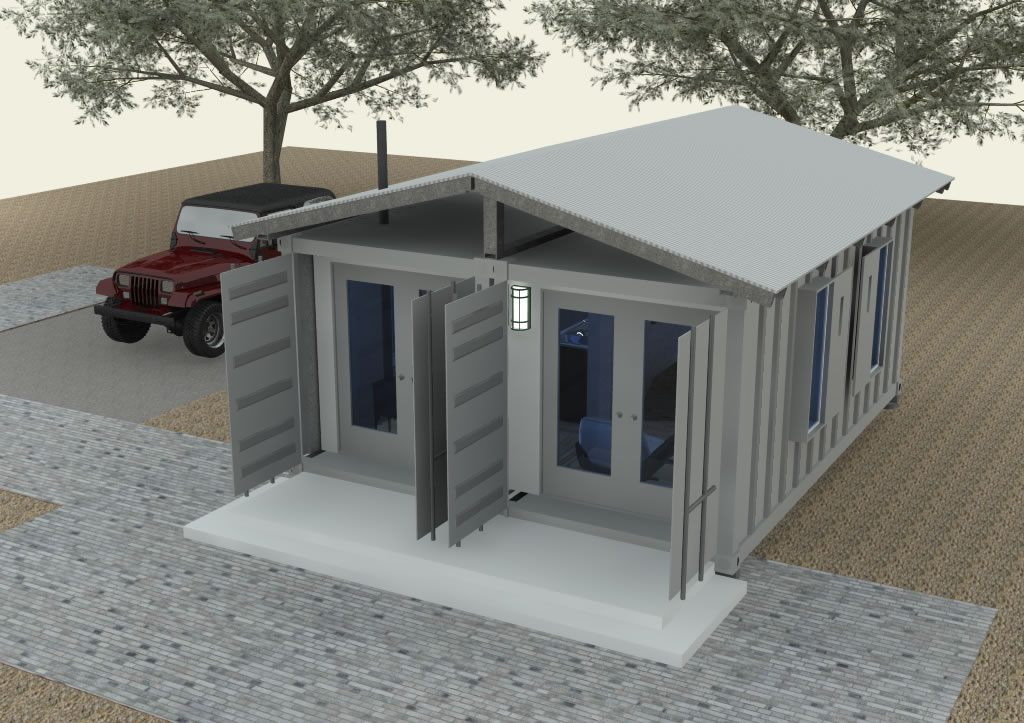Reefer Truck Guide (What is a Reefer Truck?)
Interested in learning more about reefer trucks? The demand for truck drivers has been consistent over the past few years as the need for certain products has continued to increase. Companies will always need drivers to transport necessary freight and cargo. Is being a reefer driver right for you? Read on to learn more about these trucks and why they’re so important.

Contents
What Is a Reefer Truck?
A reefer truck is the slang term for a refrigerated truck. The trailer is refrigerated, allowing perishable goods to be transported within this type of truck. Reefer trucks have an active cooling system that keeps perishable and frozen goods fresh during transport.
Reefer trucks are manufactured in lengths between 28 and 53 feet, the latter being most common. They are never taller than 13.5 feet. On average, the inside of a reefer truck is between 8 and 9 feet tall.
Reefer trucks are used to transport the following products:
- Frozen goods
- Perishable goods
- Manufactured chemicals
- Pharmaceuticals
- Candles
- Chewing gum
- Flowers
- Paint
- Tobacco products
Types of Reefer Trailers
A reefer truck’s semi-cab is the same standard as other conventional trailers; the trailer itself is temperature regulated. A reefer truck mostly looks the same as any other standard shipping truck on the outside. The most notable difference is above the semi-cab, where the cooling unit sits to keep the trailer at a constant temperature.
Inside the reefer trailer are interior insulations and vents. It almost looks like a standard kitchen refrigerator, just converted into truck form. The insulation keeps the cold air in the trailer while the vents allow a constant flow of cool air to circulate. Reefer trucks are made with deep channel floors or T-shaped decking to encourage cold airflow throughout the trailer.
How Does a Reefer Truck Work?
A reefer truck uses 3 components to keep its trailer cold during transport. First, there is the compressor. This component compresses the gaseous refrigerant into a liquid state for the next piece, the condenser.
The condenser uses fins with a large surface area to cool the warm liquid as it moves. This significantly colder liquid cools the air around it, similar to how a radiator cools an engine.
Finally, the evaporator receives the cold refrigerant to be metered and released into the trailer. As this air warms up once again, the cycle renews.
Other important mechanical parts of a reefer truck include the insulated box, the air chute, the air ride suspension, and the tire inflation systems.
How To Start a Reefer Truck
Most reefer trucks use a digital menu to control the temperature in the refrigerated trailer. You can choose the load type for the product you’re transporting, the desired temperature, and more. To start the reefer, begin by selecting the load type on the main menu. From there, you can adjust the internal temperature to best fit the needs of the transported product.
Finally, you can choose which run mode you want – continuous or start/stop.
You should set your reefer on continuous when transporting produce. Fresh produce requires constant airflow to maintain a proper temperature. Typically, a defrost setting is necessary for continuous runs to prevent ice from building in the evaporator on humid days.
How Cold Can Reefer Trucks Get?
Reefer trucks can drop to temperatures as low as -20 degrees Fahrenheit! The average temperature that a reefer trailer sets is between -13 degrees to 55 degrees Fahrenheit. How cold the truck has to be will depend on the shipped product.
How Much Weight Can Reefer Trucks Carry?
The maximum load weight on a reefer truck is between 43,000 to 45,000 pounds. The most common sizes of pallets are 42” by 48” and 48” by 48”. A 53-foot-long reefer trailer would hold 30 42” by 48” pallets and 26 48” by 48” pallets.
Can You Use Diesel Fuel in Your Reefer Truck?
Technically you can use diesel fuel in a reefer truck, but it’s better to use reefer diesel. It is not taxed and is commonly used for off-road vehicles, agricultural, and construction equipment. This fuel is distinct from regular diesel by its red coloring. Because it isn’t taxed, reefer operators are not spending their entire paychecks refueling their trucks. Using reefer diesel in a typical truck or car is a finable offense.
Who Makes Reefer Trucks?
Some popular manufacturers that make reefer trucks are Great Dane, Hyundai Translead, and Utility Trailer.
Great Dane has locations across the US, and its products are sold by countless third-party vendors. This manufacturer offers three models of refrigerated trailers; Everest, Alpine, and Johnson. The Everest model is their most heavy-duty reefer trailer designed for long drives. The Alpine and Johnson models are smaller but equally efficient for keeping the product cold.
Hyundai Translead is headquartered in San Diego, CA, and has been in business since 1947. This company prides itself on putting a customer’s needs at the center of everything they do. They offer one model of a refrigerated trailer, the ThermoTech reefer. It was designed to be lighter and more durable than competitor trailers. It can be customized to meet any needs.
To round out the list is Utility Trailer, a manufacturing company that has been in business for over 100 years. Utility offers two models of refrigerated trailers; the 3000R and the 3000R Multi-Temp. Both models use the same thermal technology, but the Multi-Temp provides more customization for buyers who need it.
How Much Does a Reefer Truck Cost?
It’s hard to say how much a new reefer truck costs without getting an official estimate from a company. Many trailers are customizable, so the price can vary greatly. Used reefer trucks sell for between $10,000 and $35,000. New refrigerated trucks will cost more than this estimate in most, if not all, cases.
Owning and operating a reefer truck costs close to $5,500 per year. The annual fuel price is just under $4,000, and the average yearly maintenance cost is $1,500. Some refrigerated trailers are electric and can cut these costs. However, there are still additional fees such as insurance to consider.
Renting a full-sized reefer trailer is around $190 per day or $800 per week. Smaller trucks cost nearly $160 per day or $680 per week. The smallest option, refrigerated cargo vans, typically cost around $150 per day or $650 per week.
When Is the Best Time To Buy a Reefer Truck?
The best time to buy a reefer truck is during the off-season for produce. Starting in March, fruits and veggies are ready to harvest and transport across the US. During this time, reefer trailers are in high demand to safely carry produce across the country. The produce season typically lasts from the beginning of spring until the end of summer. Therefore, the best time to purchase a reefer truck is in fall or winter.

Is It Hard To Drive a Reefer Truck?
Driving a reefer truck is different from driving a traditional semi. While driving a refrigerated trailer, you are also responsible for ensuring your product load is consistently at the correct temperature. Any problems with the cooling system or product need to be attended to immediately to avoid damage to the cargo.
Driving a reefer truck requires the driver to have a CDL (Commercial Driver’s License). To receive a CDL, you must take classes to learn the specific truck operation laws and policies. Like a standard driver’s license, you’ll have to pass a written and driving exam to earn your CDL.
Reefer truck drivers typically make $28/hr or $58,748/year on average. This pay rate varies based on location and employers.
Pros and Cons of Reefer Trucks
We’ve put together some pros and cons of purchasing a reefer truck with the intent to operate it independently as a career.
- There is a high demand for reefer drivers. There is always a need for temperature-controlled transportation, no matter what time of the year.
- Pickups and delivery are typically easier when working with large retailers like grocery chains and distribution centers. This is because these companies handle thousands of pounds of cargo daily.
- Reefer trucks can be used without temperature control for standard freight. Using a reefer truck in all situations increases the number of work opportunities you have.
- Reefer drivers don’t work a typical 9-5 shift. Many reefer drivers work extremely early mornings or very late evenings to avoid unloading products during high-traffic customer times.
- If you’re planning on driving independently, the maintenance on your truck comes out of pocket. You’ll also be responsible for keeping the inside clean, either by your own hand or by paying someone else’s
FAQs
Below are some additional questions that people interested in purchasing a reefer truck typically ask.
Is a box truck a reefer?
A box truck is not a reefer unless it has an internal cooling system to keep the product at a specific temperature. Some small trucks or vans with cooling systems can be considered reefers, but typically this slang is reserved for large trailers.
Can you plug in a reefer truck?
Yes! You can plug a reefer truck into an electrical power source to keep the cooling mechanism running.
What is the difference between a reefer truck and a dry van?
The most notable difference between these two methods of transportation is the product they move. Reefer trucks deliver perishables that require temperature control. Dry vans haul a variety of dry freight that does not require temperature control. Dry vans are the most popular type of trailer to move cargo across small and large distances.
What is the cheapest state to buy a reefer truck?
The cheapest state to buy a reefer truck in is Minnesota. The demand for reefer trailers in this northern state is much lower because of its consistently low temperatures throughout the year.
How long does a reefer truck last?
On average, a reefer trailer lasts for 8 years. The best way to get a long lifespan out of your reefer truck is to provide regular preventative maintenance. It’s also recommended to keep the annual hours driven to less than 4,000 for the best lifespan.
What kind of truck is a reefer?
A reefer truck is a semi-truck with a refrigerated trailer attached. This trailer contains a cooling system that allows for the transport of perishable goods. It can also be adjusted to carry heated products but that’s less common.
Can you run reefer fuel in your truck?
Reefer fuel can only be used to keep the cooling system running. It’s illegal to use it on the truck, and if you are caught doing it, you will have to pay a fine.

![The Real [hidden] Value of Tiny Houses](https://tinyhousedesign.com/wp-content/uploads/2015/07/Tiny-House-Design-Living.jpg)




